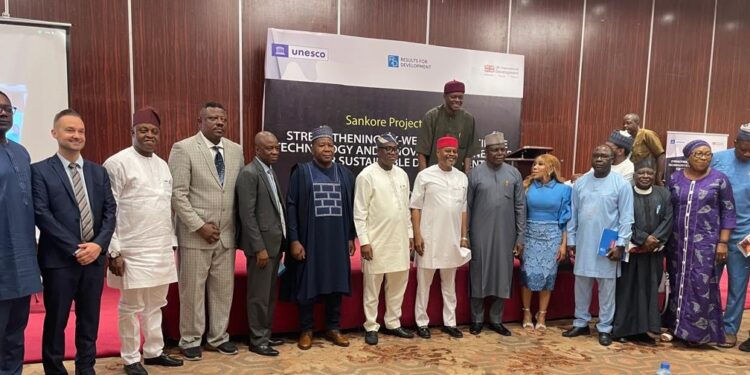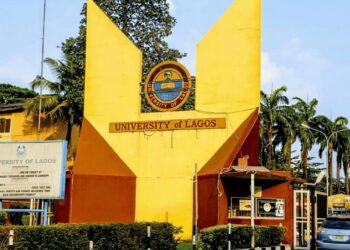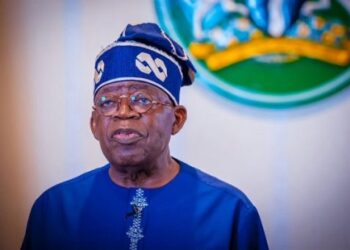The United Nations Educational, Scientific and Cultural Organization (UNESCO), in collaboration with its partners, has launched the Sankore Project to drive economic diversification and development in West Africa.
The project was inaugurated on Thursday in Abuja under the UK-West Africa Science, Technology, and Innovation Partnerships for Sustainable Development initiative. It is supported by Results for Development (R4D) and the UK International Development with funding of up to £1.9 million from the Foreign, Commonwealth & Development Office (FCDO).
Boosting Economic Growth through Science and Innovation
Speaking at the event, Chief Uche Nnaji, Minister of Science, Technology, and Innovation, said the project aligns with President Bola Tinubu’s eight-point agenda on economic growth.
“The Sankore Project is set to enhance economic growth, improve public service delivery, and strengthen partnerships across the region,” he stated.
He added that a steering committee would be established to oversee the project’s implementation and ensure accountability.
UK’s Commitment to Science and Innovation in West Africa
Ms. Susan Mshana, Deputy Director and Head of the Integrated Strategy and Delivery Unit at the British High Commission, highlighted the UK’s commitment to advancing innovation in Nigeria and Ghana.
“The initiative complements existing UK-funded programmes such as Manufacturing Africa, the Global Innovation Fund, and British International Investment,” she noted.
She further explained that Sankore would support the Ghana National Research Fund and Nigeria National Research Fund while promoting the commercialization of innovations in key economic sectors, including agriculture and energy.
Addressing Research and Development Challenges in Africa
Dr. Ibrahim Murtala, Ghana’s Minister of Environment, Science, and Technology, emphasized the low investment in Research and Development (R&D) across Africa.
“Africa’s investment in R&D stands at just 0.42% of Gross Domestic Product (GDP), while Ghana’s is 0.3%, far below the 1% target set by the Lagos Declaration over four decades ago,” he said.
He noted that Africa accounts for less than 1% of global patent filings, and publications in emerging fields such as Artificial Intelligence (AI) and Biotechnology remain low. He expressed optimism that Sankore would serve as a catalyst for scientific and technological advancement in the region.
UNESCO’s Role in Strengthening Innovation Systems
Ms. Kornelia Tzinova, Head of the Natural Sciences Sector at UNESCO’s West Africa Regional Office, said the project would run until March 2026 and strengthen the science, technology, and innovation (STI) systems of both Nigeria and Ghana.
“We aim to enhance bilateral strategies between the UK, Nigeria, and Ghana in science, technology, and innovation,” she stated.
Similarly, Mr. Edmond Moukala, Head of UNESCO’s Ghana Office, said the initiative aligns with the International Decade of Science for Sustainable Development (2024–2033).
“The decade presents an opportunity for science to drive sustainable development and address pressing challenges in West Africa,” he said.
A Strategic Collaboration for Economic Growth
The Sankore Project is designed to help Nigeria and Ghana tackle key national challenges such as economic diversification, job creation, and climate resilience through STI-driven solutions.
The initiative is being implemented by UNESCO and R4D, in partnership with Ghana’s Ministry of Environment, Science, and Technology (MEST), Nigeria’s Federal Ministry of Innovation, Science, and Technology (FMIST), and other stakeholders.


















































































 EduTimes Africa, a product of Education Times Africa, is a magazine publication that aims to lend its support to close the yawning gap in Africa's educational development.
EduTimes Africa, a product of Education Times Africa, is a magazine publication that aims to lend its support to close the yawning gap in Africa's educational development.